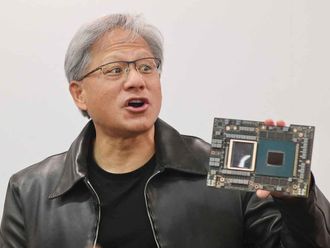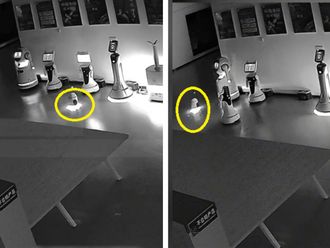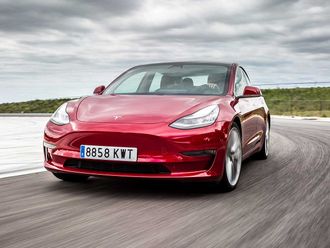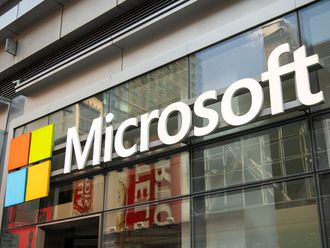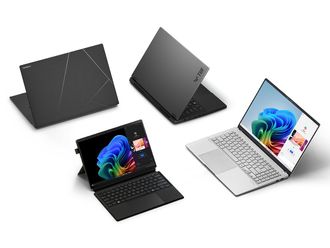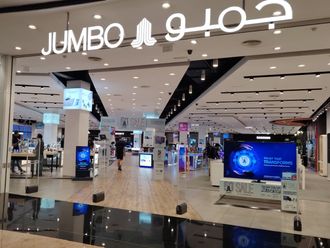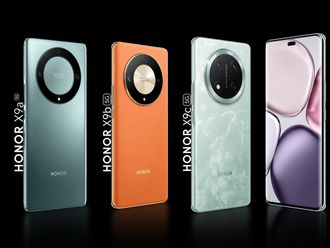Dubai: A raft of financial technology (fintech) companies are sprouting up across the globe and in the UAE, attracting the interest of hordes of customers and investors, including angel venture capitalists, family offices and even private equity funds.
But for most people, the question is: What is fintech?
Fintech is a term used broadly and often to describe the technology that underpins much of the financial industry. It can be anything from a new biometric payment option, such as using your smartphone to scan your finger print to verify a purchase, to high frequency trading software designed to profit from small fluctuations in share prices. Investments in fintech start-ups have quadrupled in 2013 from $3 billion (Dh11.02 billion) to over $12 billion in 2014, underlying how technology and the internet are changing the nature of money and financial services radically.
|
|
Moe Levin Courtesy: Keynote Events |
According to Moe Levin, founder of Keynote Events, which is based in Amsterdam, and who is a member of the UAE-based Global Blockchain Council, there are thousands of different fintech products and by-products.
“More the financial technology improves and grows, more the future will change. fintech will reduce the cost of doing business and increase efficiency. We have seen that with simple financial technology like chip and pin machines to pay for your bill in restaurants as opposed to paying using cash,” he said.
Most visible element
The most visible fintech phenomenon of the last decade has been Bitcoin, a purely digital currency. Bitcoin is a financial technology that allows people to send virtual money to each other with minimal fees, instantly, without the use of banks. The technology involved in verifying and confirming those transfers, commonly known as ‘Bitcoin mining,’ is driven by a technology called Blockchain, a distributed database.
Database technology, which has been around for decades, is used to record and analyse data, but a distributed database means that data is not kept in a single area but is instead spread out over multiple servers. Think of it as a cloud-based database.
“Blockchain is a functional global ledger, and it is going to change everything you know about how companies conduct business,” Levin said.
“I believe the region is ready for this innovative technology. The Blockchain is the greatest invention since the internet and has revolutionised and simplified the process of conducting financial interactions between organisations.”
Levin said that Bitcoin and Blockchain are still in a nascent stage in the region, and the UAE is the first country to actively take the next step and encourage use of Blockchain.
As of the first quarter this year, Levin said that total venture capital investment in Bitcoin and Blockchain start-ups now exceeds $1.1 billion.
Blockchain technology has other applications other than just recording bitcoin transactions. It can record and store information about virtually anything. It can keep a record of all homeowners in the UAE, for example, or all car owners in the UAE.
Levin said most industries — including remittances, insurance, financial investment advisories, and online trading — will have to adapt at some point. He added that Blockchain could be used by a government agency like Dubai’s Road and Transport Authority (RTA) to record all car transactions, allowing anyone seeking to transfer ownership of their car to do so using this technology.
“This is the value being exchanged over the internet,” he said. “It is possible to digitise assets, like cars, homes, goods, and trade them. Where things get really interesting is when we start digitising, or, making digital, commercial goods and services. When different goods along a supply chain are all recorded, and instantly accessible by all relevant parties, the supply chain becomes more transparent, and the transactions become smoother and cheaper,” he said.
The technology could even be used to verify your graduation from a university, Levin said, adding that if a list of all alumni was recorded on a Blockchain, any company can ping that database to see if that person has graduated.
Levin is part of the Global Blockchain Council, which was formed by the Dubai Foundation for the Museum of the Future with 46 members, including Dubai Trade, Dubai Gold and Commodities Exchange, Emirates and Dubai Department of Economic Development. Seven pilot projects by telecom operator du, Dubai Multi Commodities Centre, Dubai International Financial Centre, Loyyal, Viktor Koeing, IBM and Bitoasis are already on in Dubai.
Pilot projects in Dubai
• FlexiDesk, the first pilot project in Dubai was conducted by BitOasis and the Dubai Multi Commodities Centre (DMCC) to find practical applications for Blockchain technology. The project is aimed at facilitating the DMCC’s transactions by accelerating services and achieving high efficiency at lower costs.
• Trade Flow, the second project by DMCC, will provide digital financial transaction services using Blockchain technology. The project will also help significantly reduce costs, increase operations security, unify transactions procedures and provide superfast services round the clock.
• Dubai Points aims to incentivise tourism in Dubai by awarding points to tourists when they visit a tourist destination, encouraging them to return and utilise their points. Dubai Points is a partnership between Du, Jumeirah, Cream, Privity, DigitUs, the International Culinary Centre for Culinary Arts Dubai, SquareCircle Tech, Travelex, Flyin and PricewaterhouseCoopers.
• The Dubai International Financial Centre (DIFC) adopted ‘Digital Wills’ to register wills using Blockchain links. This project will enable clients to transfer their properties to beneficiaries using a fast and secure process while complying with local regulations.
• Health Records is a pilot project by du aimed at unifying new digitised health records in hospitals and clinics by using Blockchain technology. The project will provide a modernised record system that is fast and efficient and capable of saving many lives.
— N. K. C
$293.35 billion
IT spending by global financial services in 2015
$304.22 billion
Expected IT spending by global financial services in 2016
$7.63 billion
IT spending for financial services by Middle East and Africa region (excluding Turkey) in 2015
$7.96 billion
Expected IT spending for financial services by Middle East and Africa region (excluding Turkey) in 2016
Source: IDC


